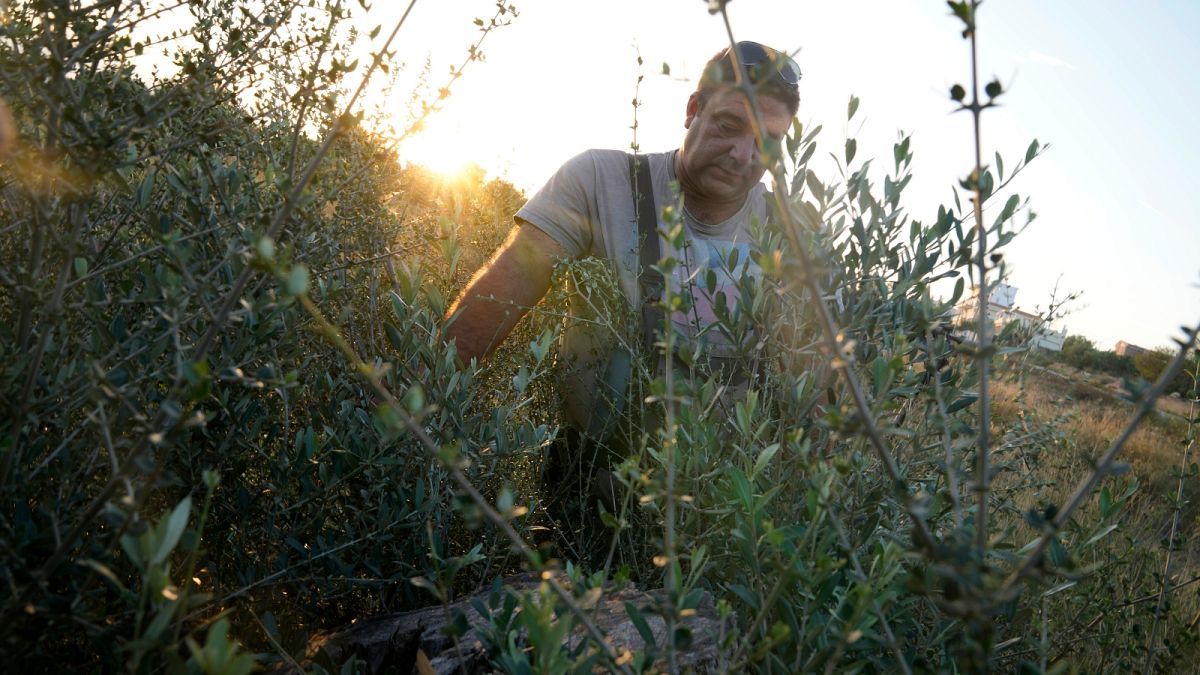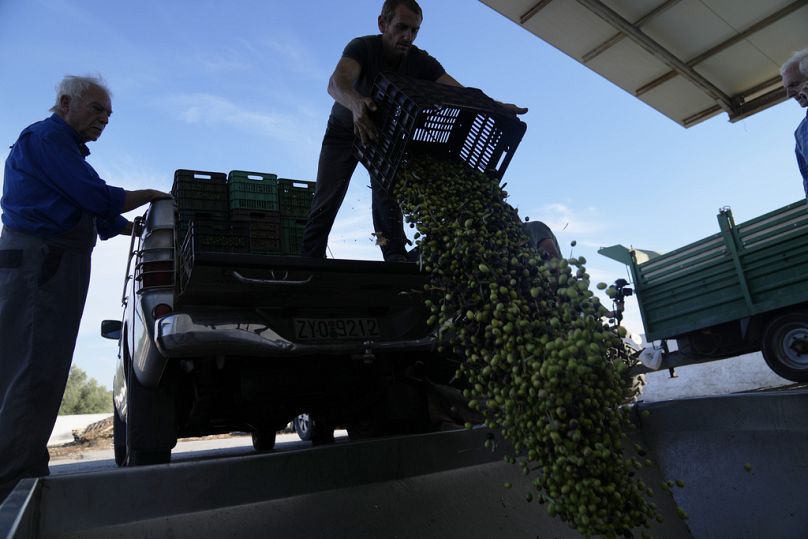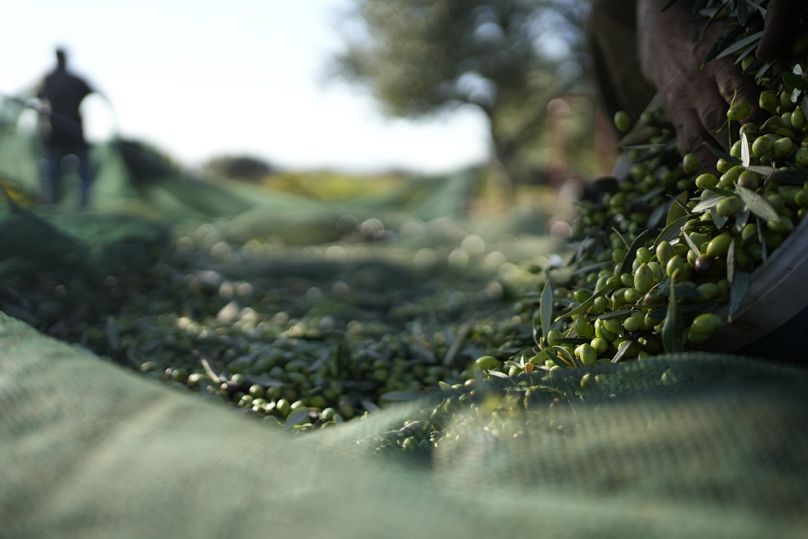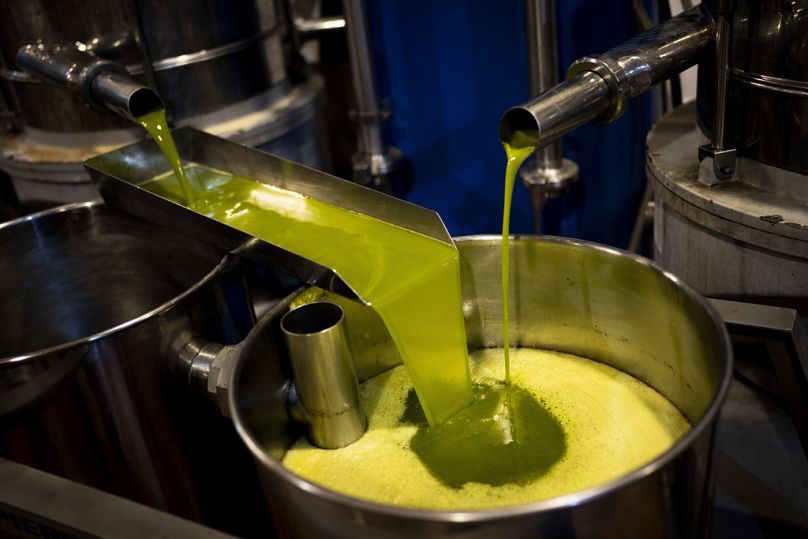As demand for olive oil outstrips supply, high prices have caused a boom in illegal activity in olive-growing regions.
A father and son duo were apprehended by Greek authorities outside the northern city of Thessaloniki recently, accused of peddling counterfeit sunflower oil labelled as olive oil.
Police uncovered some 13 tonnes of counterfeit oil, with the sunflower oil being purchased in nearby Bulgaria. The two men allegedly added colouring agents to the sunflower oil to try and pass it off as premium extra virgin olive oil instead, a common tactic of fraud within the industry.
A portion of the counterfeit products were sold in Bulgaria and the rest were distributed within Greece, police said.
The father and son were provisionally released pending further investigation as oil samples have been dispatched to a laboratory for analysis to check the potential harm posed by the added colours.
Olive oil scams like this are becoming increasingly common, as prices for the real deal have tripled since 2019, creating a profitable practice for theft and fraud.
Arrests for illegal olive oil trade across Mediterranean
Greece isn't the only place recently hit, with law enforcement in Spain and Italy detaining 11 individuals and confiscating more than 5,000 litres of counterfeit olive oil, dismantling an international gang accused of profiting from the sale of inferior oils as premium varieties.
The joint operation, conducted by the Guardia Civil, Italy's carabinieri, and Europol, involved raids in both countries and inspections of olive-processing cooperatives in Spain's Ciudad Real, Jaén, and Córdoba provinces.
In Spain, the gang employed a company linked to the acquisition of lower-grade oils. They altered low-quality oils to mimic virgin and extra-virgin varieties, selling them with falsified documentation.
The process involved mixing cloudy oils, a by-product of olive oil production, with higher-quality olive oil to achieve the required levels of fats and other components. The gang also avoided traceability by not registering their companies' oils.
In Italy, the carabinieri discovered a similar falsification operation involving two significant oil-processing companies. Simultaneous searches in both countries resulted in over 5,200 litres of olive oil, €91,000 in cash, and four high-end vehicles.
Using a cheaper and inferior product and passing it off as a higher quality by mislabelling is one of the most common methods used in fraud and olive oil, according to the European Commission’s 2022 report on food safety.
High demand, low supply
In the EU the average price of olive oil has risen 75% since January 2021, and in Spain, the largest olive oil producer, the price has gone up by 150% in the past two years, causing some supermarkets to put security tags or padlocks and chains to prevent theft.
Spain's top business organisation, CEOE, said there was a 30% increase in repeated thefts targeting retailers in 2022, and a further 12% so far in 2023.
Spanish exports have been reducing, noticeably since December 2022 when the volume decreased by up to 30%, according to data recorded by the Spanish Ministry of Agriculture.
Although prices have also increased in neighbouring Portugal they remain lower than Spain and because of this many Spaniards have begun to cross the border to buy their olive oil at a cheaper price, with a litre of olive oil costing 27% more in Spain compared to Portugal.
In Greece, the price of olive oil went up by nearly 70% between January 2021 and September 2023, according to the Greek Statistical Authority (ELSTAT).
'I think prices will continue to go up' Judy Ridgway, an olive oil expert, told Euronews, 'The new harvest for 2023/24 is going to be very much depleted, we’re not sure yet by how much, but of course, scarcity is going to put the price up.'
For the second year, droughts have caused global olive oil output to decrease leaving a high demand for the olive commodity.
Global olive oil production is anticipated to decrease to 2.4 million tonnes, according to the International Olive Council, marking a decline from last year's harvest and falling notably below the worldwide demand of approximately 3 million tonnes.
'A mix of various factors, such as the general inflation of prices, reduced olive oil production and increasing demand, have created the perfect breeding ground for fraudulent producers,' the European Union Agency for Law Enforcement Cooperation (EUROPOL) said in a statement
Theft 'in the middle of the night'
It's not only operations of fraud and oil diluting that are being used by fraudsters across Europe, but also the theft of olive trees from plantations.
'I’ve come across cases in Italy where theft has occurred. They quite literally come along with a tanker and a pipe and syphon it off,' Ridgway told Euronews.
In the northern Greek region of Halkidiki an estimated 37 tonnes vanished from olive mills, with more than 100kg of olive oil reportedly taken from groves in Messinia, the southern tip of the Peloponnese.
"There has been a noticeable increase amongst our producers of illegal theft of olives from peoples farms," a spokesperson of Greek olive oil manufacturer Kadmus, explained to Euronews. "Most of the activity occurs in the middle of the night where a team would harvest illegally the owner’s trees and then press the oil for themselves."
Reports of the branches of olive trees and whole trees themselves being cut down to steal their olives, have become an extremely valuable commodity.
As worsening climate conditions in Greece and other olive-growing regions continue to plague the olive industry, illegal activity will likely continue, as demand for this 'liquid gold' increases.



